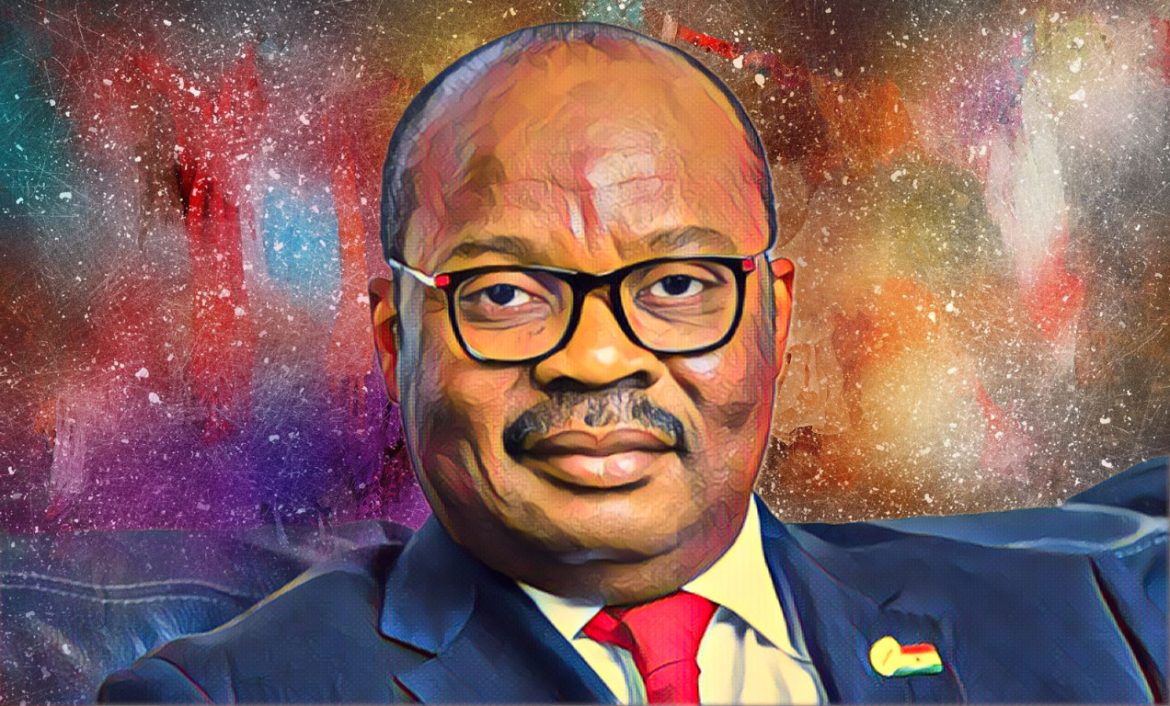Ghana’s central bank governor, Dr Ernest Addison, has assured the public that the recent increases in taxes will not lead to a surge in inflation, which has been on a downward trend for the past four months.
Speaking at a joint press briefing in Accra on Friday, January 19, where the approval of Ghana’s second tranche US$600 million loan facility by the International Monetary Fund (IMF) was announced, Dr. Addison said the Bank of Ghana (BoG) would continue to manage the inflation side of the macroeconomy to ensure that the implementation of tax policies did not affect the single digit inflation target.
“The Bank of Ghana will continue to monitor both domestic and external developments and respond appropriately to ensure that the downward inflation trajectory is sustained without undermining growth,” he said.
He added that the increases in taxes should not necessarily lead to higher inflation, but rather help improve fiscal consolidation and bring the overall macro pressures down.
The increases in taxes are part of the government’s Post COVID-19 Programme for Economic Growth (PC-PEG), a three-year US$3 billion program with the IMF, aimed at restoring debt sustainability, enhancing domestic revenue mobilization, and supporting the recovery of the economy from the impact of the coronavirus pandemic.
The program has led to increases in some existing taxes and the introduction of new ones, such as the COVID-19 Health Levy, the Sanitation and Pollution Levy, the Energy Sector Recovery Levy, and the Financial Sector Clean-Up Levy.
Some economic analysts have raised concerns that such tax measures could fuel inflation, which could erode the purchasing power of consumers and affect the business environment.
However, Dr Addison said the BoG had observed a significant decline in inflation from a peak of 54.1 percent in December 2022 to 23.2 percent in December 2023, the lowest level since June 2021.
He attributed this to the monetary policy stance, stable crude oil prices, a relatively stable exchange rate environment, and a stronger foreign exchange reserve accumulation.
He said the BoG expected inflation to remain within the medium-term target band of 6 to 10 percent in 2024, barring any unforeseen shocks.
He also said the BoG projected a real GDP growth of 4.6 percent for 2024, supported by the recovery of key sectors such as agriculture, industry, and services.
He acknowledged that the country faced some challenges, such as the high public debt, the fiscal deficit, and the uncertainty of the global economic outlook due to the COVID-19 pandemic.
However, he expressed optimism that the ongoing structural reforms, the successful completion of the first review of the IMF program, and the continued implementation of the PC-PEG would support better functioning of the economy and enhance investor confidence.
He urged the government to adhere to the fiscal consolidation path and the debt management strategy, as well as to mobilize more domestic revenue and rationalize public expenditure.
He also called on the private sector to take advantage of the opportunities created by the PC-PEG and the African Continental Free Trade Area (AfCFTA) to expand their businesses and create more jobs.
He said the BoG would continue to collaborate with the government and other stakeholders to ensure macroeconomic stability and sustainable growth for the benefit of all Ghanaians.
Source: Ghana News Agency





7 comments
Thanks for sharing. I read many of your blog posts, cool, your blog is very good.
Wir stellen sicher, dass alle gängigen Zahlungsmethoden verfügbar sind
und unterstützen Ein- und Auszahlungen in €, um einen reibungslosen Ablauf der Transaktionen zu gewährleisten. Dank zertifizierter Zufallszahlengeneratoren und Routineprüfungen ist jede Runde unserer
Spielautomaten oder Tischspiele zufällig und unvoreingenommen. Unsere Betriebslizenz besteht nicht nur aus Papierkram–, sondern ist
Ihre Zusicherung, dass jedes im Seven Casino angebotene
Spiel regelmäßig auf Fairness und Konformität überprüft wird.
Alle Interaktionen auf unserer Plattform werden verschlüsselt und überwacht,
um Ihre Sicherheit zu gewährleisten und sicherzustellen, dass jede Transaktion in € sicher ist.
Seven Casino bietet ein aufregendes Online-Erlebnis mit einer breiten Palette
an Spielen, großzügigen Boni und einer benutzerfreundlichen Oberfläche.
References:
https://online-spielhallen.de/cosmo-casino-erfahrungen-mitglied-von-casino-rewards/
Yes, RocketPlay Casino is fully legal for Australian players.
Immersive live dealer games streamed in HD with professional croupiers and
social interaction. Deposit and withdraw funds with
ease using multiple payment methods tailored for Australian players.
Her goal is to help players make informed decisions with confidence.
For fans of strategy and skill, the table games section provides fertile ground to test your knowledge of various games.
Leading companies such as Evolution Gaming, Playtech, Lucky Streak,
Ezugi, Pragmatic Live and others are responsible for the table games at
Live Casino. Essentially, this 10-tier system is full of features and benefits
such as bonuses and lower wagering requirements.
References:
https://blackcoin.co/jeetcity-casino-a-comprehensive-review/
With the impressive collection of 1,600 Gaming Machines and 8 Poker tables, the casino offers an abundant array of games to suit every player’s style and preference.
Treasury Casino Brisbane, an iconic gaming destination since 1995, offers
an immersive gaming experience, drawing players with its Poker tables, Gaming Machines, and captivating atmosphere.
These Treasury Casino games are available 24/7 with more tables open during
peak times.
Queensland and Brisbane offer some of the best gambling anywhere in Australia.
Treasury Online Casino supports a wide range of secure payment methods for Australian players.
Cards are physically dealt, roulette wheels spin on camera,
and results are streamed live.
Once you turn 18 you can take part in any casino game that catches your attention. It was legalised by the Commonwealth Interactive Gambling Act of 2001, and Queensland does not have specific laws for or against online gambling.
So, make your online casino mission successful and pick
the best websites Aussies can find. Making a first deposit and triggering
a bonus is what online casinos is all about.
References:
https://blackcoin.co/this-is-vegas-casino-review/
casino paypal
References:
jokakiki.shop
online real casino paypal
References:
https://www.munianiagencyltd.co.ke/employer/best-online-pokies-in-australia-2025-real-money-pokies/
Thank you for your sharing. I am worried that I lack creative ideas. It is your article that makes me full of hope. Thank you. But, I have a question, can you help me?